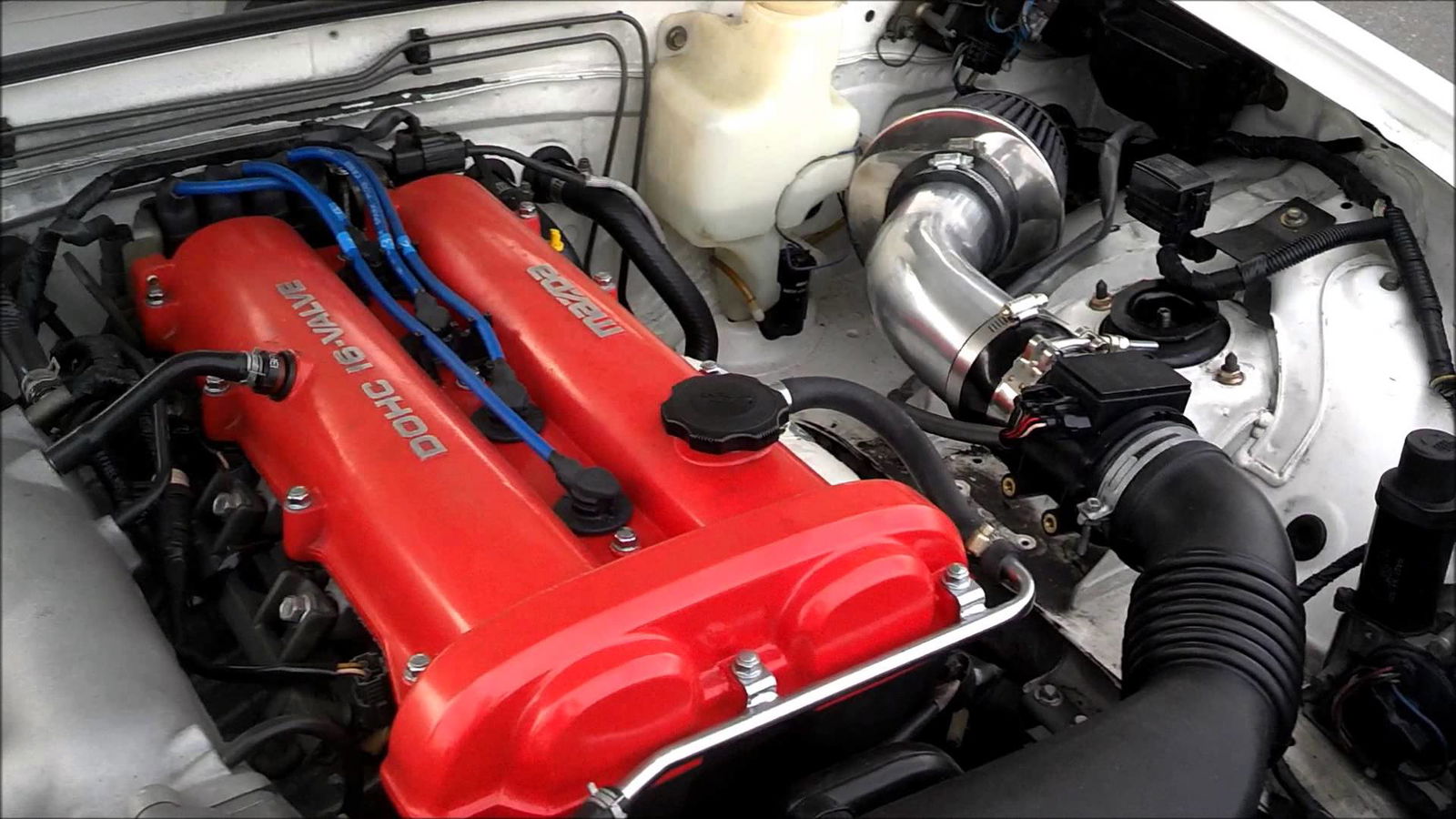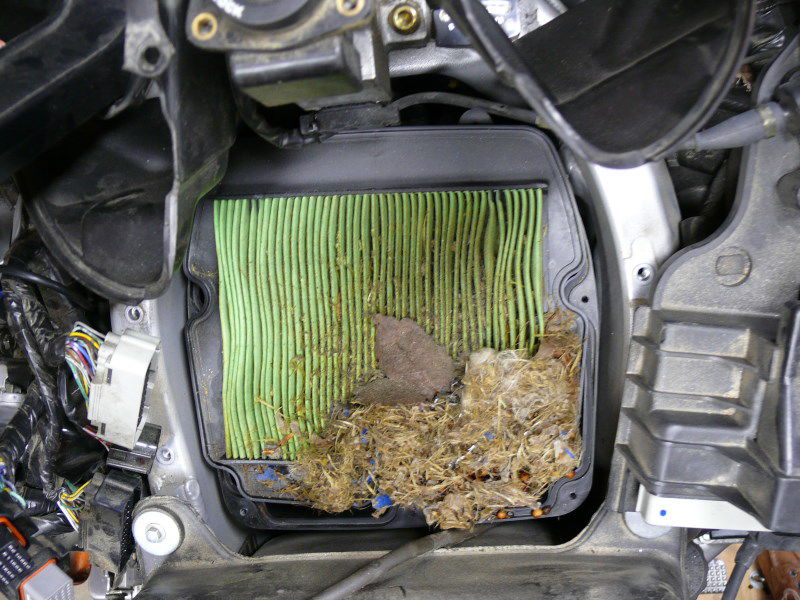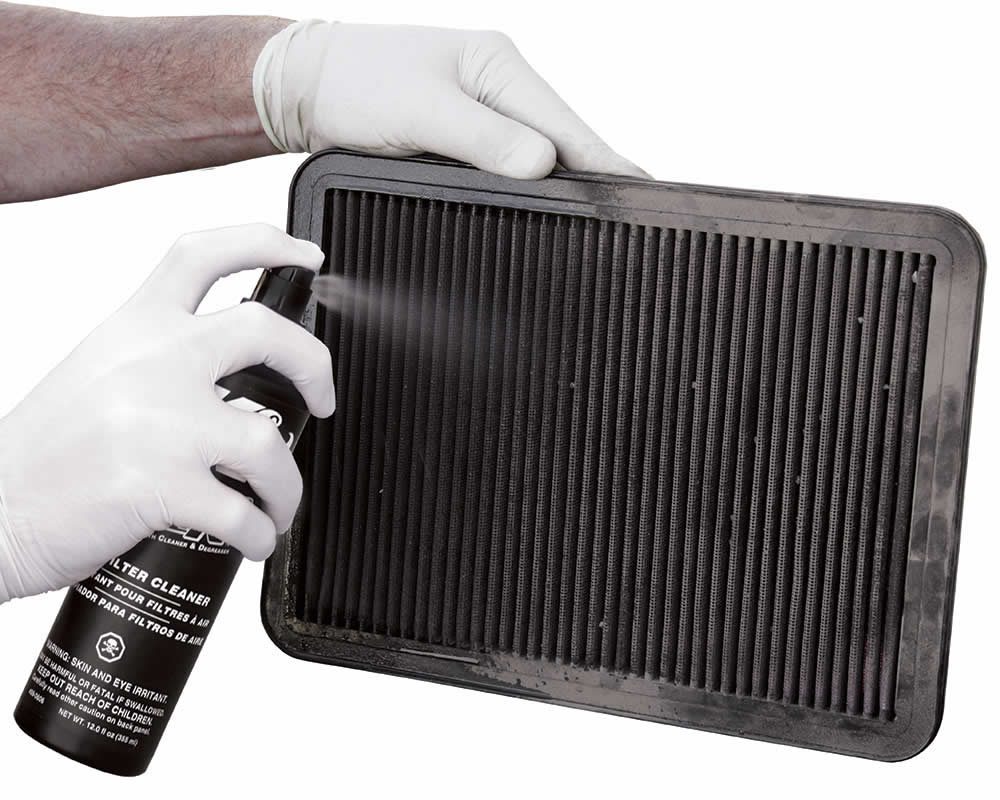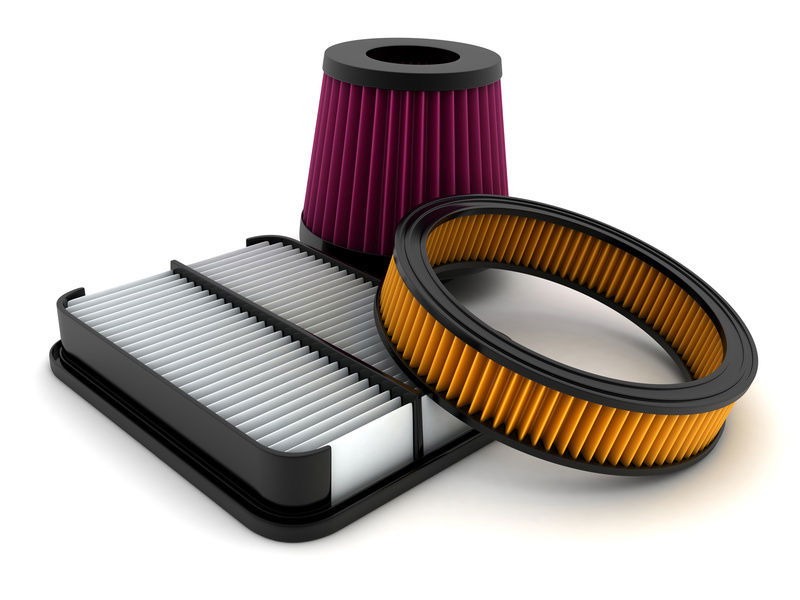What Are Cotton Air Filters, And Are They Worth It?

With air being one of two vital ingredients for effective internal combustion, it’s easy to visualise that a larger volume entering the engine equates to a more powerful combustion cycle. The next step in ensuring performance is increasing the cleanliness of the incoming air. Ambient air is often full of unwanted contaminants that only decrease the efficiency of ignition. To the rescue comes the air filter, which uses meshed material to impede the air entering the airbox, stopping any foreign bodies from entering the cylinders.
In most cars, cheap and disposable paper filters are used which are made up of compacted wood pulp bonded together to form a mesh of natural fibres. To produce an effective level of filtration, paper air filters are often bulky in size or are particularly dense in terms of fibre construction. Although this format is more than capable of initially filtering inlet air, flow restriction can become an issue. The more material that the air has to make its way through to reach the sanctuary of the inlet manifold, the volumetric flowrate will decrease, restricting power.

The dense mesh of a paper filter also causes dirt and grime to build up within the filter, further restricting the inlet air flow. The interaction of the air with the tight pulp mesh also produces turbulent air flow into the inlet manifold which is inefficient for flow rate into each cylinder. This all equates to the recommended procedure of replacing a paper filter at every service interval or 10,000 miles, allowing a fresh set of lungs for your engine after slowly clogging up over time.
To counteract all of these inherent issues, multiple aftermarket manufacturers produce cotton filters as a more convenient and performance-orientated alternative. Made to last the lifetime of your car (upwards of 150,000 miles), these filters use layers of cotton infused with oil that helps pluck any incoming muck from the air. Aluminium meshing is pleated with the cotton fibres intertwined between the metal to create a cotton-based gauze, maximising surface area leading to an increase in potential filtration.

The factor that makes cotton filters so great is the way in which they manage the accumulated dirt. Once the cotton fibres collect the dirt particles, the oil layering suspends the contaminant away from the fibres, leaving the filter material free for the next onrush of mucky air. The suspended dirt then acts as a primary filtration system, collecting other dirt as it travels by in a Velcro-like manner. This means that – to an extent – cotton filters perform better with age, completely inverse to the aging properties of a cheaper paper filter.
Tales have arisen of filter oil being sucked through the intake and insulating the mass air flow sensor. This in-turn would result in a miscalculation by the ECU, creating a lean air/fuel ratio. K&N - a prominent cotton filter manufacturer - has apparently dispelled this “urban myth” through “years of diagnostic testing”. The company went on to say in a statement released a few years ago that service outlets create this myth to repeatedly sell you ‘safe’ paper filters.
For every cotton filter used, you’d be going through up to 10 paper filters if changed at the recommended intervals.

Although cotton filters shouldn’t need to be replaced, it’s good practice as a petrolhead to clean the filter at 50,000-mile increments. This can be achieved using one of many aftermarket cleaning sprays which can be applied to soak in and lift dirt from the filtration material.
This cleaning agent then must be rinsed out using low pressure water, followed by a thorough drying of the entire filter. The oil will have been washed away during this cleaning process, so before reassembling the air filter into the airbox, a dousing of filtration oil should be sprayed into the pleated material, freshening the filter for further use.
While manufacturers like K&N will praise their cotton filters for their performance gains, the air flow and therefore power differential when compared with a clean paper filter is usually trivial. Although a sweeter induction noise can be produced by the different materials used within the cotton filter’s construction, the real benefits in the running of its corresponding engine are only really found later down the line of the filter’s lifetime when a paper filter would begin to clog up.
Mighty Car Mods physically debunked the popular cone filter format along with an oiled cotton filter sold by many aftermarket stockists (see above). It must then be understood that the majority of automakers have fully researched and engineered the stock airbox design (along with its corresponding filter) to achieve a high level of air filtration. So although that bulky paper filter may look like it should only belong in your Mum’s Honda Jazz, the real world differences in filtration to an expensive cotton filter are minimal.
Do you stick with a standard paper filter, or is an oiled cone filter more you kind of thing? Comment below with your preferred air filtration setups!




Comments
A cotton air filter may contain a bird inside of it, just like what Marty and Moog saw when they were building the SubarUTE.
Some years ago I changed the stock paper air filter with a cotton one in my Fiesta 1.4 TDCi. It had 68hp and it was a low fuel consumption city car. Under 2000rpm it had very low torque then at 2000 rpm the turbo kicked in suddenly.
With the cotton I felt torque building up since around 1750 rpm and the turbo kicking in at 2000 rpm
More Power!!!!
I’ve got a foam filter…..
“The dense mesh of a paper filter also causes dirt and grime to build up within the filter, further restricting the inlet air flow”
“The suspended dirt then acts as a primary filtration system, collecting other dirt as it travels by in a Velcro-like manner. This means that – to an extent – cotton filters perform better with age”
This is the exact same principle but you’re saying it’s a good property for one type of filter and a bad property for another. All filters collect dirt, increasing the effectiveness of the filtration at the expense of flow. Frankly, they’d be terrible filters if they didn’t collect dirt.
A few advantages for cone filters have been missed, like the fact that if you’ve got a very un-standard intake system a cone filter is easy to fit. Also, does this article have a proper conclusion? I’ve read it and I understand the benefits of both style of filter but feel no closer to knowing which one to fit. Had this article been a little bit closer to this http://www.fastcar.co.uk/tuning/performance-car-air-filter-test/ with actual tests and a conclusion that summarises their findings and informs the reader, rather than a brief internet search and some facts from K&N’s website, then I would be less driven to complain about the article. As it is though this is pretty lazy writing, and unfortunately completely in line with the quality of articles produced by Car Throttle staff for what is becoming years now.
PS. A lone sentence about how many paper filters you’d need to last one cotton filter placed between a paragraph about MAF contamination and a paragraph about cleaning filters? Talk about unstructured.
Oiled K&N panel filter using the cars stock airbox.
Allows for the long life and slight increase in induction noise, also uses the stock/optimal inlet track which offsets the downsides of pod filters, which often receive air from hot parts of the engine bay, or in cases of CAI’s very low down where they are likely to pick up all sorts of road detritus and water.
I put a K&N panel filter in my Commodore for two main reasons, it’s a lifetime air filter that never needs replacing and it slots straight into the factory air box. Only after clipping the air box up and driving it did I start to occasionally hear that oh so sweet induction noise. For the reasons mentioned, I’d always recommend to try and find a proper air filter. They may cost a bit, but in the long run, they’re cheaper
Your mums honda jazz …. well its actually my own jazz and yes it does have a k&n panel in it…. yes im serious…
Mr Fernie,
Please be more skeptical or at last scientific…
Coton air filter are queen of flow test in laboratory but their filtering ability is null compared to a OEM paper or synthetic fiber filter.
Coton gauge filter don’t hold down dirt efficiently too contrary to OEM paper/synth one..
All that aftermarket “performance” coton filter are pure marketing and slow engine killing.
Ok for a simple 70’s carbureted engine that was the norm when K&N brand hit the market but NO WAY ok or sufficient for late 90’s and todays engine, you’ll just f*ck up the ring seal and other critical internal parts play.
Just to add to my post:
http://www.nicoclub.com/archives/kn-vs-oem-filter.html
http://www.autospeed.com/cms/article.html?&title=Dont-Bother-Changing-the-Factory-Filter&A=111486
PS: I laughed a lot when i red “The interaction of the air with the tight pulp mesh also produces turbulent air flow into the inlet manifold which is inefficient for flow rate into each cylinder”
Are you sérious!?
just math the air speed at WOT at Max power of whatever car you own at the filter surface (the whole filter filtering surface) … you will see it’s very very low, so the pressure loss is also very very tiny and so the potential add of a “Performance filter” is none. :)
If there’s cotton air filter, there’s clothes,magma,dirt,stone,
diamond air filters.
Pagination